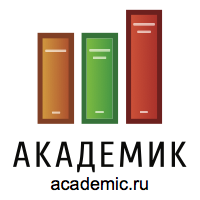Во Скопје во 1349 Стефан Душан издава свој Законик, кој, за жал, во оригинал не е зачуван, зачуван, меѓутоа зачувани се десетина преписи и од таму добиваме информации за оваа историска личност.
Душановиот законик започнува со зборовите "Законик на пречесниот и христољубивиот македонски цар Стефан, владетел српски, бугарски, унгарско-влашки, далматиниски, арбанашки, и на многу други региони и земји".
Вака гласат загрепскиот (Хрватска), раваничкиот (Србија), софискиот (Бугарија) препис на Душановиот законик. Душановиот законик со Стефан Душан како македонски цар ќе се најде и во книгата на Љ. Стојановиќ: (Lj. Stojanovic, Stari srpski zapisi i natpisi. Knj. III, Beograd 1905, p. 41 (nbr.4949).)

(Code of) the honorable and Christ-loving Macedonian Tsar Stefan, Serbian, Bulgarian, Hungarian, Dalmation, Arbanasian, Hungarian Wallachian and indipendent ruler of many other regions and lands...
Lj. Stojanovic, Stari srpski zapisi i natpisi. Knj. III, Beograd 1905, p. 41 (nbr.4949).
Дури и познатата Едит Дурхам во своето дело "Висока Албанија", прво издание, отпечатено во далечната 1909 година зборува за Македонците, каде што го цитира Душановиот законик "Законик на Цар Душан Македонски, автократ на Србија, Бугарија, Унгарија, Влашка,..” (Edith Durham, "High Albania" First published in 1909, page 294. In London Edward Arnold Publishers to the India Office 1909).

Како што можеме да видиме, Цар Душан се прогласил за македонски цар, но не затоа што бил Македонец, туку за некој да се прогласи за цар, император во средновековието морало да ја земе круната на некое царство кое веќе претходно постоело. А кое би било тоа царство ако не Самуиловото!
Знаејќи уште и дека Косара, ќерката на Самоил се омажила за дукљанскиот кнез Јован Владимир, кој беше заробеник на Самоиловиот царски дворец. Сепак, на негова среќа, благодарение на љубовта на Косара, тој е помилуван и станува зет на Самоил,но и дел од фамилијата.
Има ли поголем доказ со кој ќе се оспори тврдењето на некои бугарски историчари дека цар Самоиловата држава била бугарска?
Според средновековните закони, царската круна можел да ја добие само од патријарх. Кога царот Душан завладеал со целата територија на Македонија во неговата држава се нашле две автокефални архиепископии Охридската и Пеќката. Набргу Душан решил да се прогласи за цар. Затоа било потребно Пеќката архиепископија да биде прогласена за патријаршија. Во ова бил помогнат и од Охридскиот архиепископ и од Трновскиот патријарх. Дошле и двата свети синоди како и трновскиот патријарх, и двајцата го прогласиле Јоаникиј II за патријарх, за потоа тројцата црковни великодостојници да го крунисаат Душан за цар. Учеството на Македонскиот поглавар - Охридскиот архиепископ се сметало како замена на цариградскиот патријарх, кој откажал да учествува на крунисувањето. Сите промени во српската држава и црква станувале со учество и благослов на Македонскиот архиепископ. Дали и во овој случај треба да замижиме кога истата таа македонска црква денеска е негирана?
Овој историски податок, во 19 век и сметал на тогашната српска интелегенција, која била во зародиш, па затоа и има бројни фалсификати на српските средновековни документи во нивното преобјавување во 19 век. Франц Миклошич, кој заедно со Вук Караџиќ во светот за прв пат објавуваа документи од средновековната српска историја, во монументалното дело “Monumenta Serbica“, титулацијата на Цар Душан од софискиот и раваничкиот запис е пренесена како: „Стефан во Христа Бога верен цар грчки“ (F. Miklošič, Monumenta Serbica, str 154). Но, во спомантите преписи на Душановиот Законик, јасно стои "Стефан во Христа Бога верен цар македонски“. Од таму иде и нашиот сомнеж, дека секаде каде што е спомнато македонското име, српските историчари и преобјавувачи на српски средновековни документи од 19-от век, зборот “македонски“ го заменувале со “грчки“ или “ромејски“.
На ова да го надоврземе и историскиот факт за Цар Душан објавен во најстарата историја за јужнословенските народи “Historia Turcica“ (1502 година) од дубровчанецот Феликс Петанчиќ, кој бил минијатурист и управник на Будимскиот скрипториум, а пред се одличен дипломат на дворот на Матија Корвин и Владислав Втори. Во “Historia Turcica“ стои дека Цар Душан е цар на Македонците и Рашканите т.е. оригинално “Macedonum Rasianorum Caesar“ (Historia Turcica (1502), Municipal Library in Nuremebrg, 31.2). Феликс Петанчиќ (1455-1517) се смета за еден од најдобрите турколози на сите времиња.
За жал, Цар Душан во нашите учебници по историја е претставен како цар на Србите и Грците, т.е. онака како што пропагандата на нашите соседи ни ја сервира нашата историја уште од 19 век.
Понатаму, кралот Волкашин (таткото на Крали Марко) и неговиот брат Углеша во Синодиконот на бугарскиот цар Борил (Boril's Synodicon) од 14 век, е претставен како македонски крал.
Не знам која е причината што во нашите учебници по историја овој факт се премолчува и нашите деца учат дека сегашниве Македонци се чисти Словени, па почнале да се нарекуваат Македонци дури во 19-от век, т.е. ние сме нова нација која ете како Словени сме блиски до Србите и Бугарите, па можеме да се претопиме во нивните нации. Досега не сум видел друга нација, освен македонската, самата да се негира себеси и покрај историските пишани документи и факти за нејзиното постоење.
Помошен линк: http://www.dusanov-zakonik.co.yu/
Maybe someone would like to translate this text into proper English?




Comment